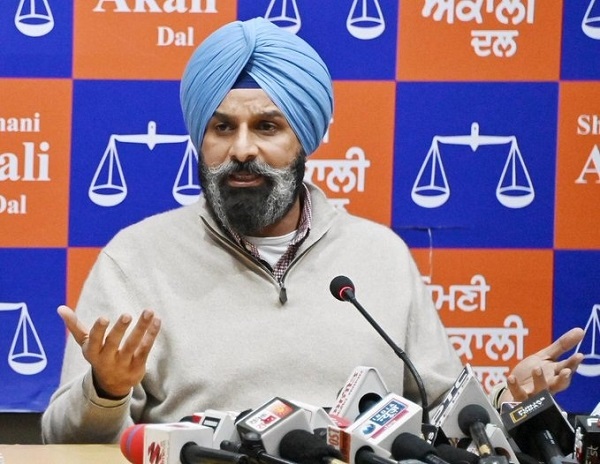New Delhi, (Asian independent) Agreeing to hear on Monday the plea filed by Shiromani Akali Dal leader Bikram Singh Majithia for anticipatory bail in a drug case, the Supreme Court on Thursday directed the Punjab government not to take any coercive action against him till then while granting interim protection from arrest.
Senior Advocate Mukul Rohatgi, who appeared for Majithia, argued that the present case is blatantly political in nature and has been registered in furtherance of the upcoming elections, with the malafide objective to target Bikram Singh Majithia who is a mainstream leader of the opposition party.
He was granted three-day interim protection from arrest by the High Court of Punjab and Haryana which expired today.
The case on behalf of Majithia was argued by Senior Adv Mukul Rohatgi, Senior Adv R.S. Cheema, Snr Adv, assisted by D.S. Sobti, Arshdeep Singh Cheema, Nikhil Rohatgi and Misha Rohatgi Mohta, Advocates and a team from Karanjawala & Co led by Advocate Nandini Gore,(Senior partner) and Sandeep Kapur (Senior partner), Advocate and comprising Virinder Sandhu, Sonia Nigam, Tahira Karanjawala, Apoorva Pandey, Aashneet Singh Anand, Neha Khandelwal, Arjun Sharma, Abhimanshu Dhyani and Sahil Modi.
Appearing for the Punjab government, Senior Advocate P. Chidambaram argued that Majithia has gone into hiding after the rejection of his bail plea in the Punjab and Haryana High Court, and now he is appearing through counsel.
The Chief Justice of India N.V. Ramana, after hearing the arguments, posted the further hearing of the case to January 31.
Majithia, the brother-n-law of SAD chief Sukhbir Badal, is in the fray for the February 20 assembly polls from Majitha, near Amritsar.
He had moved the high court after a Mohali court dismissed his anticipatory bail petition in a case under the Narcotic Drugs and Psychotropic Substances (NDPS) Act registered on December 20.
In a 49-page FIR filed by the state police Crime Branch at the Mohali police station, the SAD leader has been booked under sections 25, 27A and 29 of the NDPS Act.








